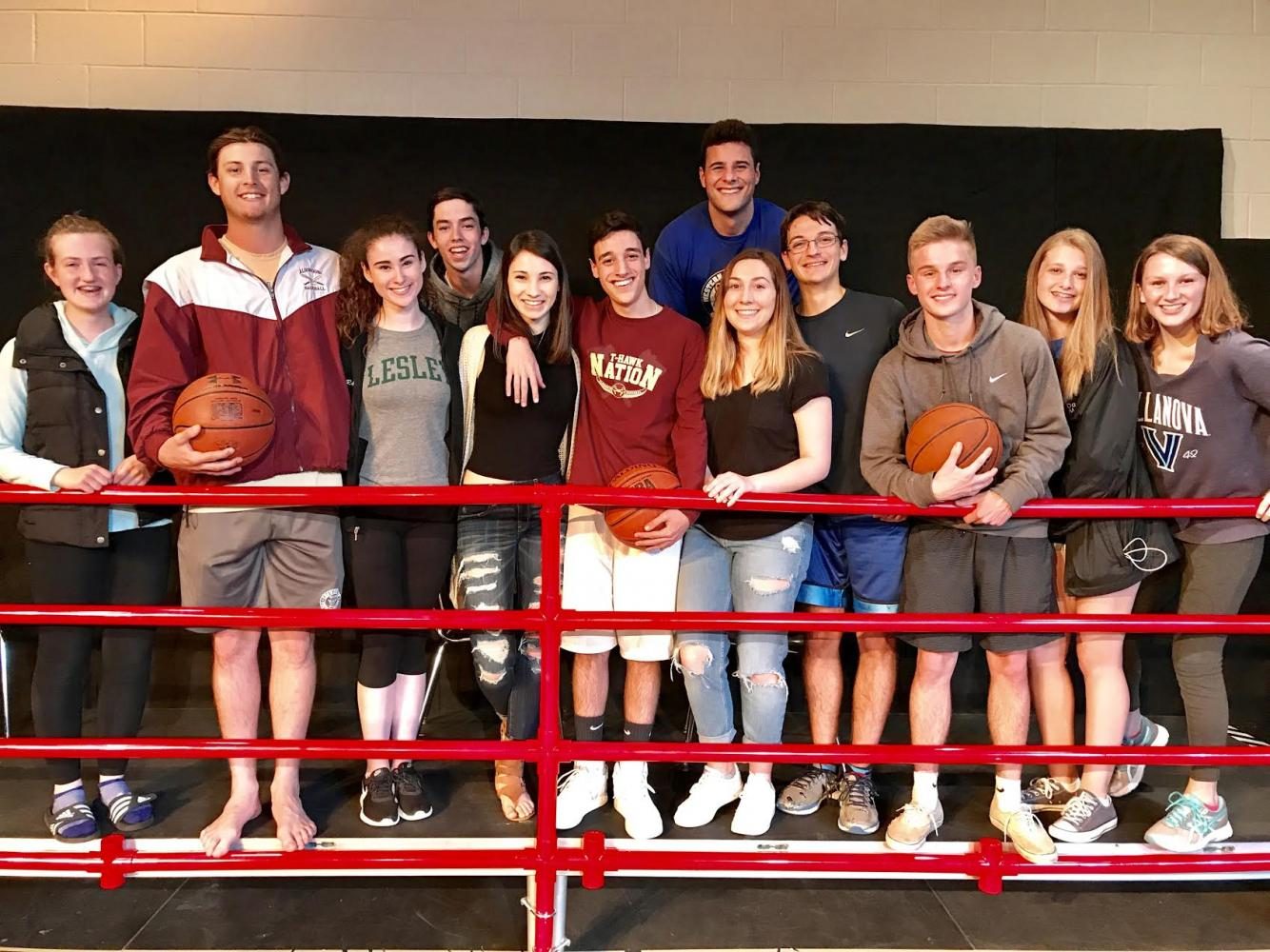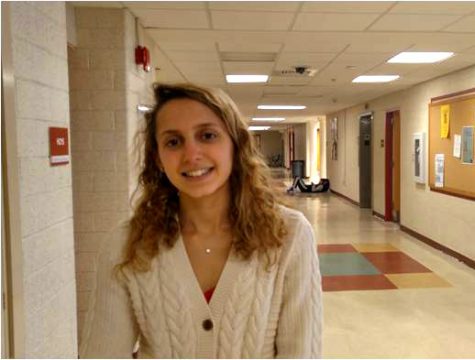Cast works hard in preparation for “High School Musical” performances
May 9, 2017
Students are working diligently behind the scenes and on stage to prepare for the renowned and celebrated spring theater production, “High School Musical,” which is expecting high popularity when it will take the stage May 24 to 27.
The cast will perform five nights to accommodate for the anticipated demand in tickets, which are $15 and can be purchased online.
Set in a high school in New Mexico, opposite worlds collide as a brainiac and basketball star enter the realm of singing and dancing when they become stars of their high school’s musical. As they encounter obstacles to perform the elaborate production, a romance simmers between the unlikely pair as they and their friends work through the drama of high school.

English teacher and director Tom Alera said that this musical has been on his mind for a long time.
“It’s all about theater that matters and that makes a difference, and this matters to kids and this makes a difference for kids,” Alera said.
Over a hundred students auditioned for the musical, but Alera was forced to cut the number down to about fifty, with only twelve students receiving lead roles.
Students with lead roles include junior Connor Macchi (Troy Bolton), junior Christina DiMare (Gabriella Montez), senior Michaela Garvey (Sharpay Evans), and sophomore Chris Martin (Ryan Evans).
To prepare the large cast, Alera said there are five to six nights of rehearsals a week, but not everyone attends each one. During big numbers, all cast members are incorporated, but otherwise rehearsals are split up. The chorus attends about once a week, while leads usually rehearse two to three nights a week, and the basketball team members often attend twice a week.
“[Rehearsals are] very relaxed so far,” DiMare said. “Towards the end it gets more intense, but it’s never a stressful environment.”
In preparing for such a production, managers senior Kevin Hatton and junior Anne Arnold have been working diligently behind the scenes. Both Hatton and Arnold help in different ways, but both are essential to the musical’s success.
“I was always in productions in middle school, in the cast, but I realized I am not very good, but I still wanted to be involved in it so I went backstage instead, and I really love it,” Arnold said.
Hatton often helps with things like understanding legal aspects of the production, such as the play contract, organizing sets and actors backstage, and planning fundraising.
“I’m helping Tommy [Mr. Alera] out with the budget-related stuff; we have to raise a lot of money,” Hatton said. “I have a fourth period independent study with him, so I will run out if he needs posters or something like that.”
For fundraising, there will be raffle baskets for parking passes, a mini iPad, a pass for the play that includes seats and drinks, and a 50/50 raffle.
Arnold attends every rehearsal in order to take attendance, sends out schedules, and keeps track of who has conflicts with rehearsals.
“During the productions I am basically in charge of all the set changes and getting people where they need to be during the show,” Arnold said.
Fortunately Arnold said there have been no set problems thus far in the show. For this production, the sets are more simplistic and imaginative in order to fit the tight budget.
The overall cost of the production is between $15,000 to $20,000 Alera said. A large amount of the money goes towards the royalties for putting on the play, but a good portion is also put towards hiring support such as a choreographer, musical, set, and vocal directors. Additionally, the cost of set pieces, costumes, posters and programs adds up quickly.
Although the Black Box seems like a small venue for such a big production, Alera and set designer Peter Nuccio have been working to maximize the space’s capability.
“We design it in a way that will only hold about 200 people,” Alera said. “It is going to be tough because a lot of people are going to want to go.”
Some of the cast are looking forward to performing in the Black Box as it differs from larger venues.
“You also feel a little bit more exposed in the black box,” Macchi said. “In the auditorium there’s so much more distance and level between you and the audience, but in the black box the audience can see pretty much every little thing you are doing.”












